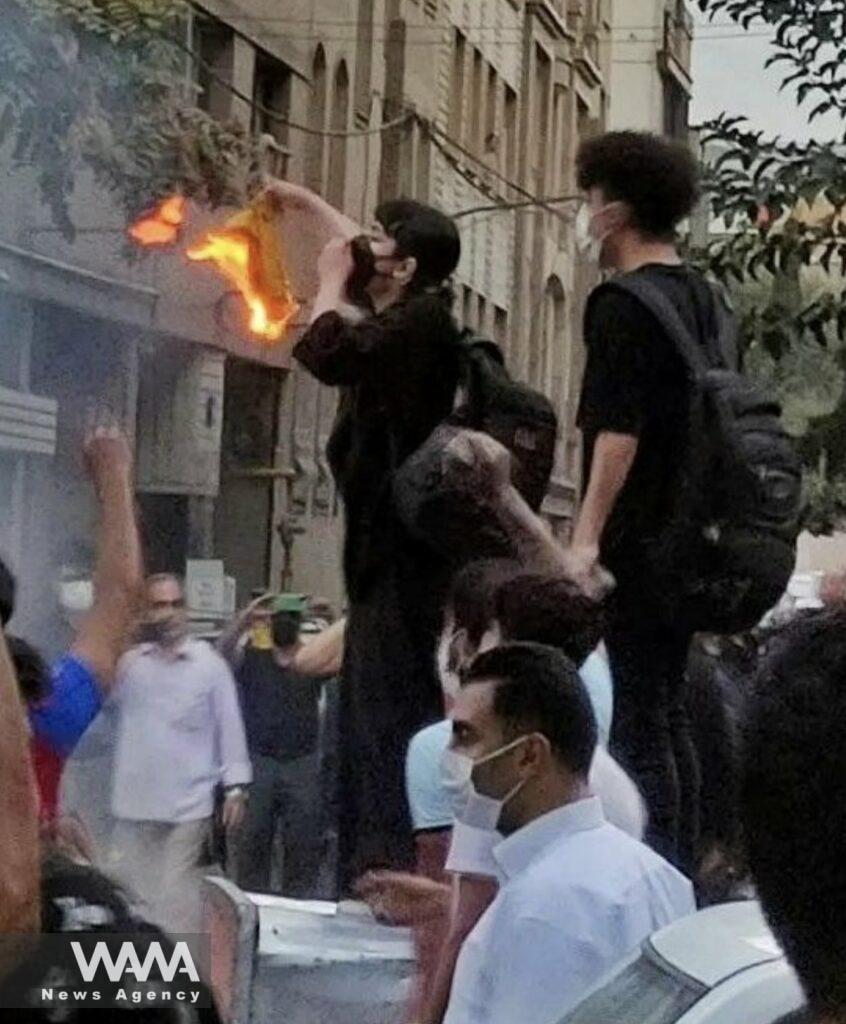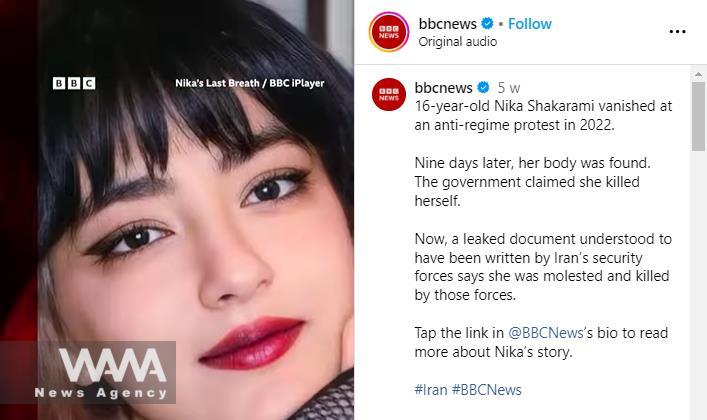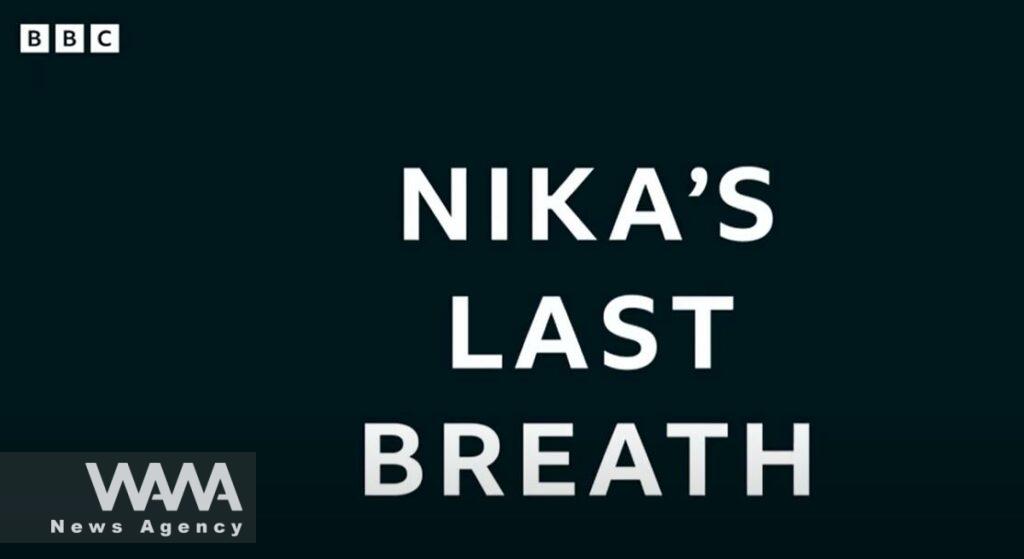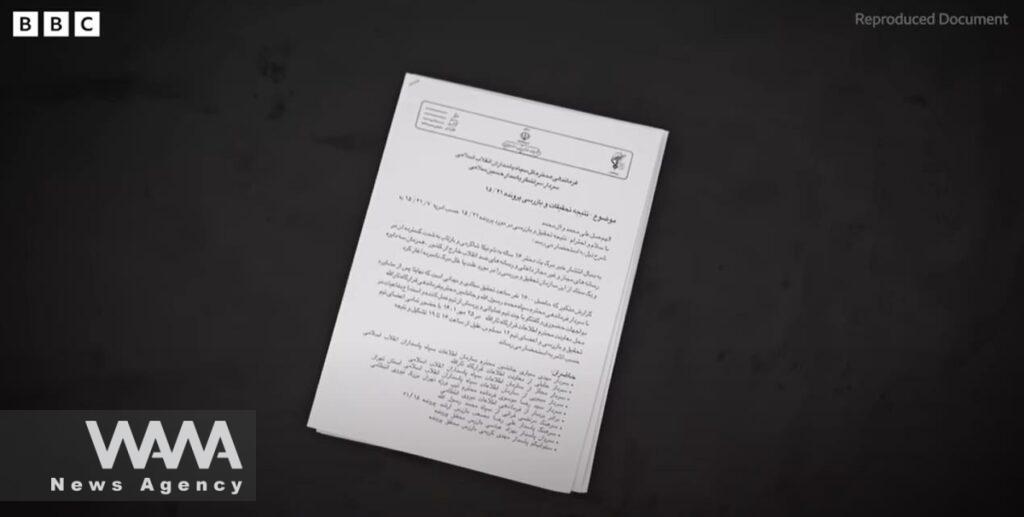BBC’s Oversight in Providing Evidence on Nika Shakarami’s Death
WANA (June 13) – Last month, BBC World aired a controversial documentary about the death of Nika Shakarami, claiming to present new evidence that Iranian security forces killed her for participating in the 2022 protests. The BBC stated that they possessed documents verified by various experts.
Since airing the documentary, the BBC has yet to present credible, verifiable documents to the public. Many Iranian viewers have criticized this as a major blunder by the BBC, and as a result, the British broadcaster has lost significant credibility within Iran.
Even many Iranian intellectuals who traditionally supported Western media and trusted BBC’s news are now highly skeptical of its reports and documents.
Mahsa Amini, a teenager, died from a brain hemorrhage on September 16, 2022, while in police custody in Tehran. She had been detained by the morality police for what they deemed inappropriate Islamic attire.
The street protests that erupted after Mahsa’s death lasted several months, resulting in dozens of deaths and hundreds of arrests.
A few days later, on September 20, 2022, the tragic news of another young woman’s death, Nika Shakarami, shocked everyone and generated considerable controversy.

Her death was headline news in both domestic and international media. At that time, many online platforms regarded Nika’s death as suspicious.
Protesters used various narratives about her death to sustain street protests and encourage more people to join. These stories and theories attracted significant attention online.
Just as the 2022 street protests were fading from public memory, BBC World released a documentary on Nika Shakarami’s death, reigniting public interest in the event.
The English media outlet, in its documentary, claimed that, after examining numerous documents and months of effort, it had managed to scrutinize all details related to this case. However, various experts in the fields of security and military, immediately after the airing of the Nika Shakarami documentary, stated that the report contained numerous inconsistencies and many incomplete and unverified pieces of information, to the extent that after 10 hours, the BBC was forced to admit that the documents it had published were reconstructed, and the originals were not displayed in the film to protect the safety of the source who sent the documents.
The BBC claimed it had sent the documents months earlier for verification to Iranian authorities but has yet to receive a response from Iran. Tehran denies this claim and asserts that the BBC is dishonest with its audience.

Mizan News Agency, a reputable news agency of the Iranian judiciary, published a detailed report regarding the ambiguities surrounding Nika Shakarami’s death, presenting new documents related to the case which showed that there was no trace of murder in her death and unfortunately, this young girl had lost her life in a successful suicide attempt.
These documents included photos of the location where the body was found and images of exchanged messages between her and her family, which had previously not been published to maintain the privacy of the deceased and her family. Numerous other news agencies also analyzed the documents presented by the BBC, which refuted the media’s claim regarding the authenticity of the reconstructed documents it had published.
By presenting 23 reasons, ISNA News Agency demonstrated the falsification of these documents. Experts have interpreted the BBC’s airing of this documentary as an act against the psychological security of Iranians, aiming to disturb public opinion and create a new wave of dissatisfaction in the country.
So-called investigative reports, particularly about Iranian women and girls, have been on the rise in the media of northern countries in recent years. These media outlets often aim to achieve specific objectives regarding Iran by creating documentaries and reports.

Why did BBC World focus on the death of Nika Shakarami?
By closely examining the sequence of events in Iran and the world during the BBC documentary’s release, one can discern its coincidence with significant global and Iranian affairs and the implementation of a new plan within Iran.
Precisely at a moment when the youth and students in many Western countries are rallying in support of the Palestinian people, and the world’s gaze is fixed on the plight of Palestinians and the injustices perpetrated by Israel, media outlets like the BBC endeavor to divert attention from these protests. They aim to create a wave of futile excitement, even at the cost of disseminating fabricated news.
During that period, Iranians witnessed the initiation of the “Noor Plan” by the Iranian police, aimed at combating un-Islamic dress codes. This plan had both opponents and supporters within Iran. The government mandated that the new approach to dealing with proponents of Western-style attire should be pursued by the police without violence or inappropriate behavior.
With assistance from their intelligence services, the English concluded that the timing for releasing this documentary might be optimal, potentially inciting public anger once again and driving people to the streets. However, the British and Hebrew schemes, pursued with the assistance of their media arms, failed to spark a significant reaction within Iran.
A few hours later, the documentary became a subject of satire in Iranian social media, and even other credible foreign media outlets did not follow up on or republish it.
The Iranians raise the question: Has BBC World lied to its audience? If not, why has it yet released the original documents it claims to have? Is BBC seeking to incite chaos in other countries by creating such documentaries?
By R. Hejazi














